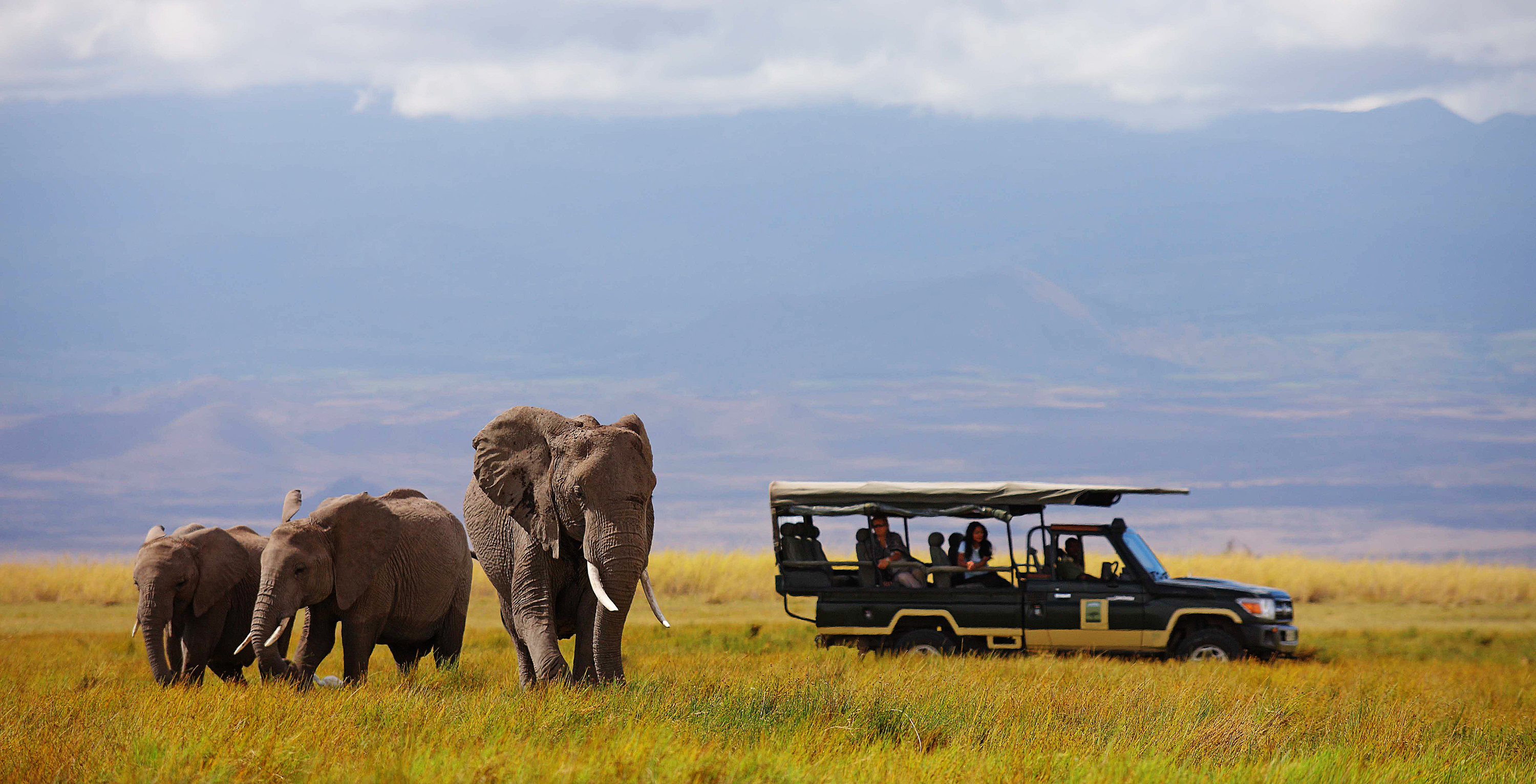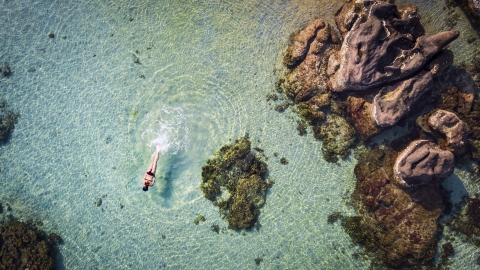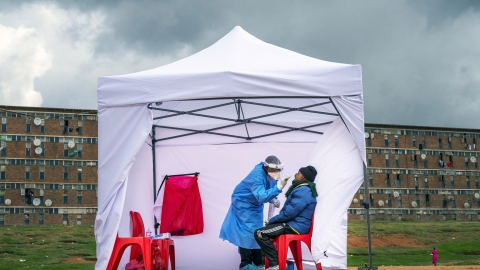Since the outbreak of Covid-19, the tourism industry in African countries has suffered losses. Parks and hotels have been deserted as people have been forced to observe social distancing measures. Therefore, some African tourism associations have come up with the idea of providing tourists with digital impressions of the continent while the Covid-19 pandemic continues.
SAFARI AT HOME
The sun slowly rises over the African savanna horizon. In the morning light, a family of elephants wanders across the grassland in search of the nearest waterhole. Herds of antelopes and zebras move through the wilderness, birds chirp… signaling a hot, sunny day ahead. This scene transports visitors to the Sabi Sand Reserve in Mpumalanga province – one of South Africa’s most popular picnic spots – seemingly real. But in reality, visitors are enjoying this picnic from home via their smartphone or tablet… not in a jeep. Virtual or real, each trip is different, adding to the fun and the experience.
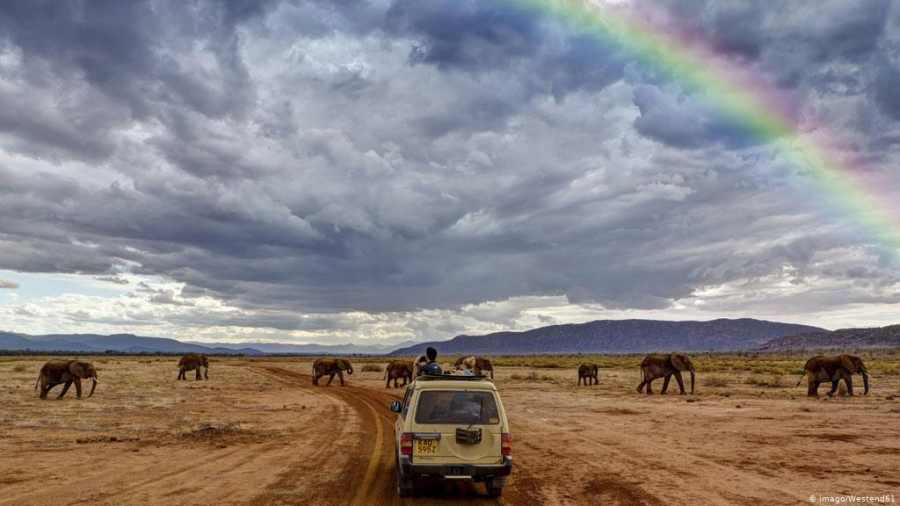
Safari in Kenya
Visiting a safari in Kenya, strolling through the Namib Desert in Namibia, paragliding in South Africa, or standing on the edge of Victoria Falls on the border between Zambia and Zimbabwe – all are experienced and enjoyed by virtual travelers like Juan Santiago (from Madrid, Spain). Juan Santiago has visited Kenya several times this time of year to observe the wildebeest migration in the Maasai Mara Reserve – one of the wonders of the world. This year is different; instead of Kenya, Juan Santiago is taking a virtual tour of Nairobi National Park. “At home, I can still experience the safari atmosphere of this park. Everything feels real. After the Covid-19 pandemic, even if my family travels to Kenya without me, this technology allows me to be with them,” said Juan Santiago.
Kenya has lost more than $750 million (€656 million) in tourism revenue since its first Covid-19 case. “That’s why the Kenya Tourism Board launched a livestream virtual safari program in June – part of the Magic Awaits campaign to promote tourism and connect the world with Kenya as each country restricts travel during the Covid-19 pandemic. Sixteen different tourist destinations in Kenya are being livestreamed. People can go online and find places they want to visit. This is an opportunity for us to show Kenya as a great tourist destination,” Betty Radier, CEO of the Kenya Tourism Board, told DW in an interview.
"Long-distance relationship"
The "We Are Worth Waiting For" campaign is being launched in Cape Town, South Africa, allowing visitors to enjoy virtual tours of Robben Island, including the former prison and Table Mountain. Enver Duminy, CEO of Cape Town Tourism, likens this period to a "long-distance relationship." "Throughout the Covid-19 pandemic, we used technology to upload images of what visitors were looking forward to, of what they last experienced in Cape Town, to social media and campaigns to subtly remind visitors why they loved exploring this place in the first place. And hopefully, technology will help us connect with and maintain this 'long-distance love' with our visitors," said Enver Duminy.
Gerald Ferreira, founder of a virtual reality company in South Africa, said: “Virtual tourism is a great opportunity for travelers to experience a place before deciding to visit or try an adventurous activity, like bungee jumping, for example.”
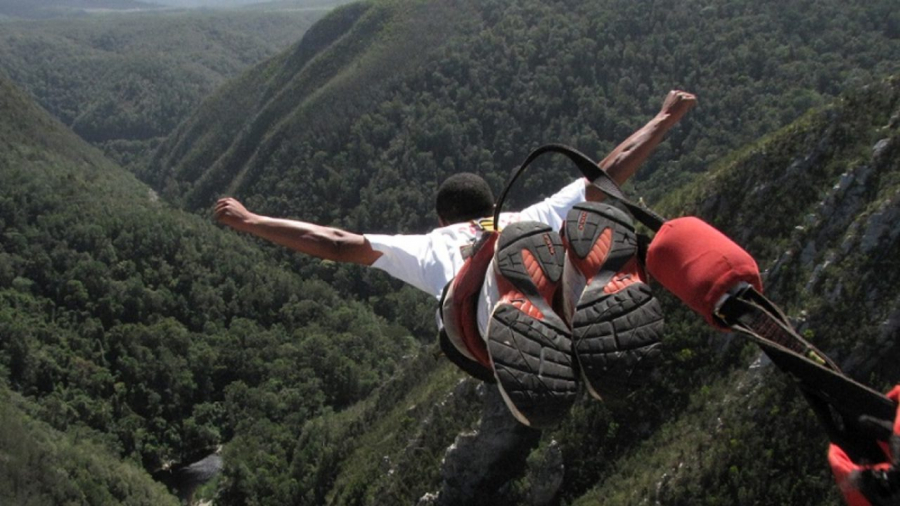
Tourists bungee jumping in South Africa
According to preliminary data from the UN World Tourism Organization (UNWTO), 74% of African countries temporarily suspended receiving tourists by early June. Before the Covid-19 outbreak, Africa was the fastest-growing tourism region. In 2018, approximately 67 million tourists visited the continent, generating $38 billion in revenue. In 2019, the number of tourists increased by 4.2%. In 2020, the increase was expected to be 3-4%.
When the coronavirus emerged, the World Travel and Tourism Council (WTTC) estimated that nearly 8 million people had lost their jobs in Africa's tourism industry. An urgent solution for African tourism was needed. Could virtual tourism replace real-world travel?
The future of virtual tourism
When the Covid-19 pandemic began, Juan Santiago, from Madrid, Spain, had a virtual view of the famous archaeological collection at the Nairobi National Museum in Kenya. He believes in the future of virtual tourism. “One day, we will all see the Nairobi giraffe from all over the world; go to work at 8 a.m. and watch it on a live screen in the office. This is good for nature conservation because nature lovers like me will donate money to conserve giraffes, rhinos, or elephants,” Juan Santiago said.
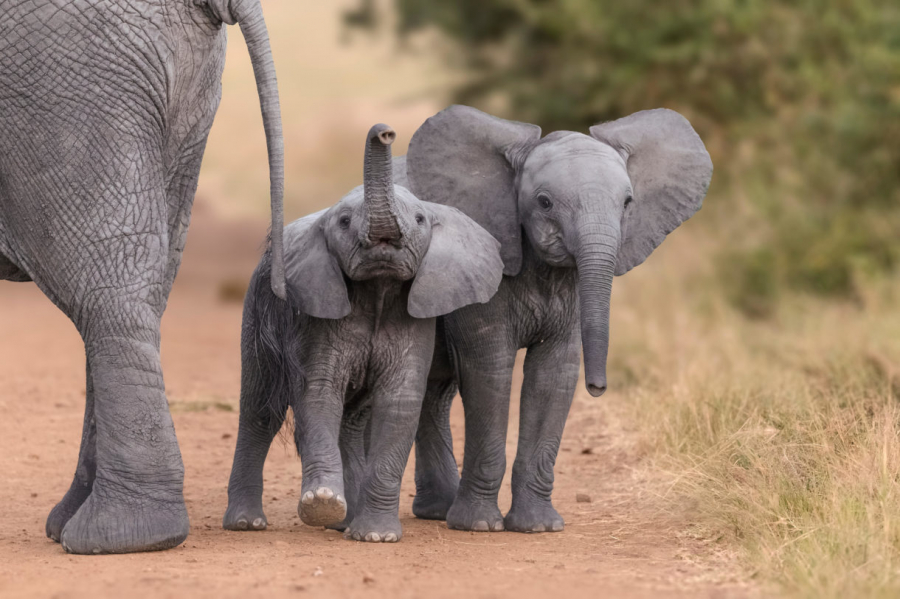
Baby elephant at safari
Patrick Karangwa, a computer scientist who provides virtual tours in Kigali, Rwanda, told DW: “I’m not competing with traditional tourism, but rather seeing myself as a partner. I help tourists who haven’t taken a tour in a long time to find more information about the places they want to visit. This benefits tourism businesses, hotels, restaurants in particular, and the tourism industry in general.”
In the next few weeks, the first package tour from Europe will arrive in Rwanda since the Covid-19 pandemic. Kenya will welcome tourists from August 1st. South Africa's tourism industry hopes to reopen from September 2020. However, whether this will actually happen remains uncertain as the number of coronavirus infections in Africa is currently increasing.
Travel enthusiasts can only hope that tours to Africa will be possible once the Covid-19 pandemic is over. Those who are content with virtual travel will also have their passions satisfied.

 VI
VI EN
EN




